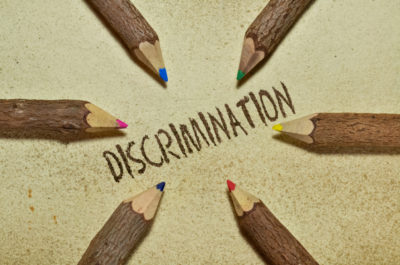The U.S. 4th Circuit Court of Appeals, which covers Maryland, North Carolina, South Carolina, Virginia, and West Virginia, recently held a trial court erred in dismissing a Facebook employee’s claim he was turned down for a promotion based on his race. The case demonstrates why promotion decisions should be made according to clear, written guidelines that help ensure a fair and consistent evaluation, free of any racial bias or discrimination.

Facts
Robert Louis Gary began working at Facebook as a critical facilities technician in a role that involved operating and maintaining the premises of a data center located in Forest City, North Carolina. In the latter half of 2013, he was scheduled for a performance review, which determined what (if any) raise, bonus, and promotion he might receive in the first financial quarter of 2014.
To conduct the review, Facebook convened a committee comprised of Matt Hamrick (Gary’s supervisor), Wayne Hawkins (Hamrick’s supervisor), and several other high-level managers. Hamrick prepared a wholly positive written evaluation of Gary for the review. He stated, however, that Gary needed to be more of a “self-starter” to merit a promotion.
Following the review, Gary received a letter indicating he received a mid-level rating of “meets all expectations,” wouldn’t receive a promotion, and would receive a modest raise.
Over the next few months, Gary met with Hamrick three times to discuss why he wasn’t promoted. Following the first meeting, he discovered his white coworker, Greg Randall, had been promoted and received a considerably higher raise, despite the fact Gary had observed that Randall struggled to perform basic troubleshooting tasks and write e-mails.
After learning of Randall’s promotion, Gary had a second meeting with Hamrick to discuss the discrepancy. At that meeting, Hamrick didn’t want to discuss Randall’s performance and didn’t provide a further explanation for the decision. When pressed, however, Hamrick mentioned—for the first time—that Gary’s “communication maybe wasn’t there.” He then scheduled a third meeting with Gary but this time included Hawkins as an attendee. At the meeting, Gary stated the only reason Randall received a promotion instead of him was because of race.
The next day, Gary submitted a complaint to Facebook’s HR department alleging the promotion decisions constituted race discrimination and that Hawkins had made the comment, “they better just be happy they have a good job,” in reference to the facility’s black employees. Following an investigation, Facebook concluded race played no role in the decision not to promote Gary and that Randall was promoted instead of Gary because Gary wasn’t a “self-starter” and lacked “effective communication skills.”
Approximately 2 months later, following his next biannual review, Gary was promoted and received a corresponding raise. About 1 year later, he obtained a statement prepared by a white coworker alleging Hawkins had made several racist comments, including that Hawkins had allegedly called Gary a “lazy [n-word]” who “wants everything handed to him,” and referred to Gary’s black coworker using the same term. Facebook investigated the allegations, found them to be true, and fired Hawkins. Facebook also paid Gary the raise he would have received had he been promoted during the earlier review.
4th Circuit Reverses Trial Court’s Dismissal
After learning of Hawkins’s racist statements, Gary filed an EEOC charge and a lawsuit against Facebook and Hawkins alleging, among other things, that Facebook’s failure to promote him following the review amounted to race discrimination.
After discovery (the pretrial phase in a lawsuit in which each party investigates the facts of a case and obtains evidence from others), Facebook requested summary judgment (dismissal in its favor without a trial), arguing, among other things, Gary failed to establish its stated reason for its decision not to promote him wasn’t the true reason. The trial court granted Facebook’s request, and Gary appealed the decision to the 4th Circuit.
On appeal, the 4th Circuit overturned the trial court. It held the trial court shouldn’t have dismissed the case in favor of Facebook and that the case should proceed to trial.
The 4th Circuit held there was enough evidence for a jury to conclude Facebook’s stated reason for its decision not to promote Gary wasn’t the true reason. First, even if Hawkins didn’t singlehandedly make the promotion decision, his role was significant.
Since Facebook could not (and did not) contest Hawkins had made racially disparaging remarks regarding Gary and others, the court held his significant role plus his racial remarks could cause a reasonable jury to conclude his racial motivation is what caused the committee (which was comprised of his subordinates and high-level managers) not to promote Gary.
Second, the court held a reasonable jury could find Gary was, in fact, more qualified than Randall for the promotion since he had more experience in the role and even helped train Randall when Randall joined the Facebook team.
Pay Close Attention to Promotion Decisions
Discrimination lawsuits related to promotions frequently involve situations in which the employer has no written promotion policy, it is applied in an inconsistent manner, or decisions aren’t well documented.
Having a clear, written policy in place, ensuring it is consistently and fairly applied, and having others carefully review promotion decisions to identify any race bias or discrimination issues that may not be readily apparent will go a long way toward ensuring such decisions are based on the merits, and nothing more.
Patricia Holliman is an attorney with Womble Bond Dickinson (US) LLP in Winston-Salem, North Carolina. You can reach her at patricia.holliman@wbd-us.com.
